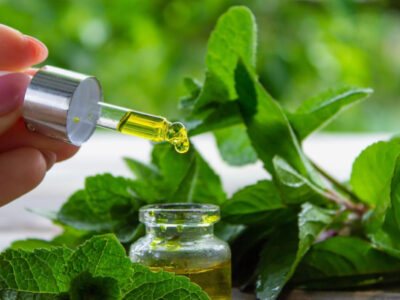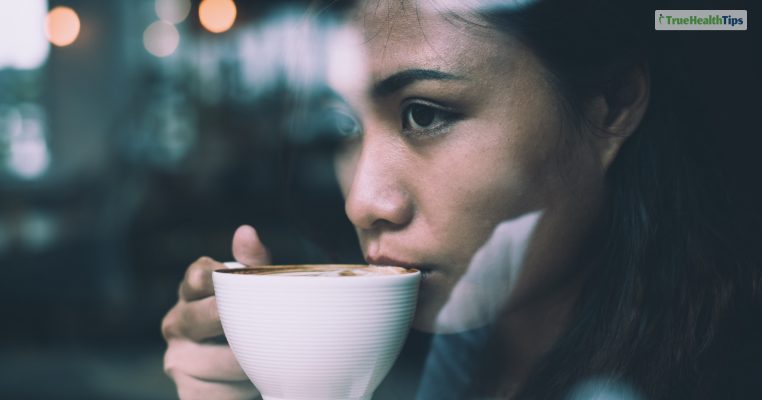
For those ill at ease with the difficult decision between caffeine and anxiety, welcome! The question of can caffeine cause anxiety is a headline topic now!
As someone close to the world of caffeine-fueled anxiety, the stimulating effects may trigger anxiety. But it is rather a matter of personal experience. Therefore, answering the question of whether caffeine can cause anxiety, the answer cannot be very simple.
This excerpt below will try to answer the connection between Caffeine and Anxiety.
We try to understand, balance, and give practical advice on harmonizing these opposite forces.
Afterall, someone who depends on caffeine cannot simply quit tomorrow!
But, then again, they would want to understand more about self-care for anxiety, and how to cut down on certain habits.
A day of activities in the life of a caffeine consumer
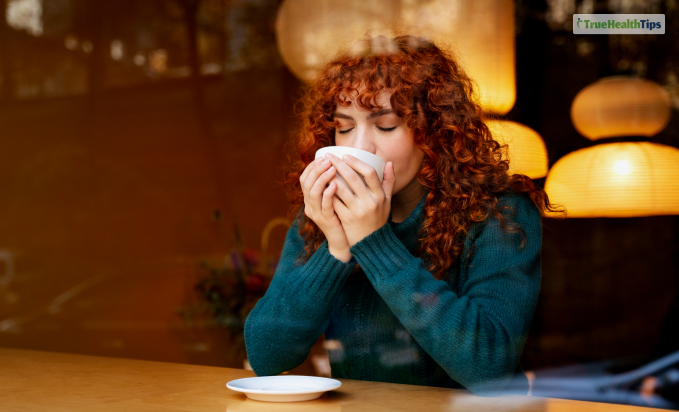
Before we understand whether can caffeine cause anxiety understand how someone with caffeine addiction looks like!
The morning alarm chiming makes millions of people take a ritualistic coffee drink. It’s a familiar scene: filling the room with the brewing pot’s aroma and promises of needed wake-up calls.
For many people, caffeine keeps them moving, the fuel that drives their productivity and alertness, the indispensable aspect of their day-to-day needs.
A good example of the mood-altering function of coffee is the need to drink it in the afternoon when there may be as many as two or three cups, energizing this late part of the day. (…yes unhealthy!)
Yet, although the first effects of caffeine shake off the blues, they pave the way for more worrying thoughts and feelings.
The quest for energy in steady consumption can be a balancing act. However, you also need an acute understanding of the body’s response to caffeine and communication. With this knowledge you can enjoy a cup or two without having to deal with the shaky edge that comes with the tenth mug.
The Comfort of Caffeine
Whether it’s the warmth and comfort of a hot mug between hands, the rich taste, or the immediate effect on the brain, it does work wonders.
It is not just the love for an energy-boosting drink but more of an experience and the flavors surrounding the cup.
This passion is two-fold. As the love for coffee gathers momentum, it leads to a caffeine addiction, which can just multiply the anxiety effects.
Identifying this relationship as our love affair with coffee is the first step towards appreciating it. Plus, not being too dependent on it emotionally and physically.
Coffee vs. Anxiety?
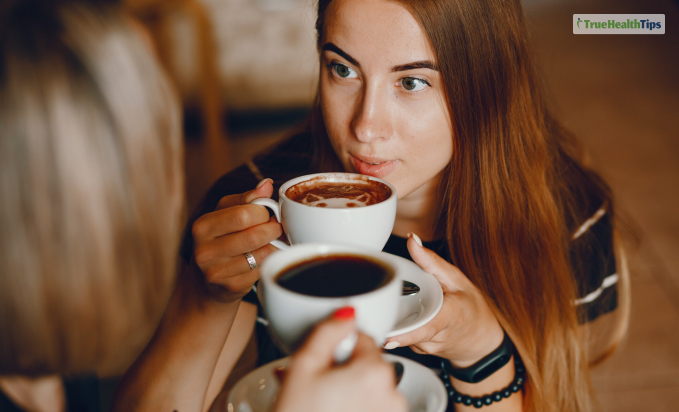
The question strikes at the core of our daily habits.
Can caffeine cause anxiety?
It is not a simple yes or no!
The answer has a few nuances.
Caffeine is, without a doubt, a stimulant. It works through the blocking of those adenosine receptors in the brain. Thus leading to a state of increased alertness.
However, the same feeling can manifest in increasing energy and concentration for others and can also trigger symptoms like rapid heartbeat, nervousness, and restlessness. You can associate these feelings with someone is under too much anxiety.
Individuals who are naturally predisposed to anxiety symptoms can respond to caffeine as a trigger rather than a stimulant.
It is worth mentioning that one’s tolerance to pain is different from someone else’s. Some are susceptible to anxiousness with even small doses of caffeine. At the same time, others drink larger amounts of it with no negative outcomes.
Establishing a personal threshold of caffeine is an important factor in the delicate field of balancing caffeine intake.
Can Caffeine Cause Anxiety – Venturing into the science behind the nervousness caused by caffeine
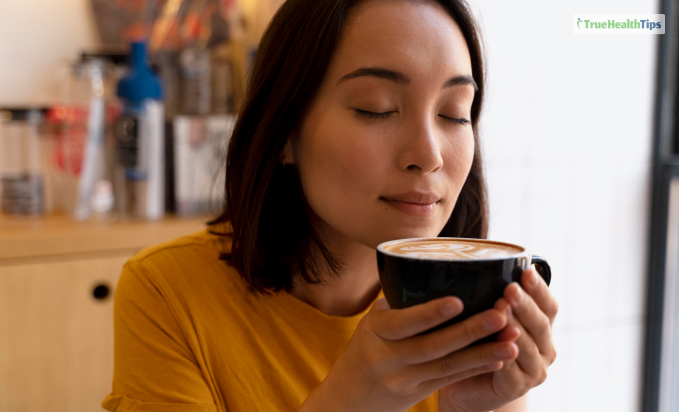
While exploring this scientific territory, caffeine’s actions on the body are multi-faceted. Besides the blockade of adenosine receptors, it also increases the release of neurotransmitters like dopamine and norepinephrine.
Yes, it can contribute to increasing alertness but may also elicit a ‘fight or flight‘ response.
In real moments of danger, this response is worthwhile but can prove counterproductive when the reaction is unjustified.
Such a scenario would be by increasing body awareness and readiness for immediate action, which indicates stress and anxiety.
Caffeine can make one not sleep well, and lack of sleep is also yet another factor that can aggravate anxiety.
Hence, this balance partially depends on chemistry and one’s reactiveness. It is important for people to self-monitor their reactions to caffeine. Plus, it regulates the intake in such a way that allows both productivity and mental soundness.
Life on the Edge: The Caffeine-Anxiety Positive Reinforcement Mechanism
Sometimes, caffeine becomes a necessary evil!
You cannot live without it, but living with it gives you the world’s worst triggers.
Unmasking the Vicious Cycle – Can Caffeine Cause Anxiety
The association between coffee and anxiety is often out of hand and can become a vicious circle. It starts quietly, but the anxiety jitters can be worse.
So, can caffeine cause anxiety?
If you are getting shaky hands, then yes!
However, that is also a sign of addiction!
Yet, for some, being awake transforms into a state of activity, to which a person becomes anxious. When a person gets anxious, sleep quality might decrease.
Thus stimulating an even greater need for caffeine consumption to combat fatigue caused by sleep loss.
This cycle can give rise to the situation of reciprocal triggers between caffeine consumption and anxiety. Resolving this cycle often depends on self-reflection and, sometimes, when needed, intervention.
Can Caffeine Cause Anxiety – Price of Alertness Induced by Coffee
The magnetic attraction to the benefits of caffeine and ignoring the unseen expenses, is the major challenge of this addictive substance. These costs are more complex than anxiety alone, as they have many effects on the health of people.
People who consume caffeine may elevate their heart rate and blood pressure. This could be problematic for those with cardiovascular problems.
It can also produce dependence, where higher doses are required over time to reach the initial level. This is where caffeine can potentially cause anxiety during this process.
As a result, caffeine is a messenger that can disrupt sleep, which may initiate a cycle of fatigue and further intake of caffeine.
Balancing these costs involves facing the truth about caffeine’s impact on our bodies and the fulfillment of long-term goals with our decisions. That is all about the trade-off between the momentary advantage of alertness and the adversity of our health.
Dialing Down: Decreasing Caffeine Consumption for Better Anxiety Control
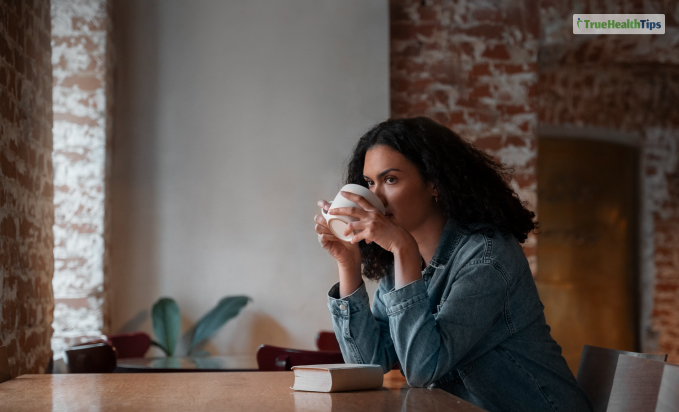
Controlling anxiety often implies a change in our caffeine consumption. Caffeine ingestion does not imply a zero level of caffeine intake but, rather, a mindful measure.
As consumption is lowered gradually, it can mitigate withdrawal and enable the body to adapt to lower caffeine levels. For instance, if you take several cups of coffee daily, you could try cutting down to only one cup. Or you can even switch to tea, which generally has lower caffeine levels.
Moreover, remember that the time of caffeine consumption also matters. Drinking caffeine at nighttime is not recommended as it disrupts sleep quality, which may increase anxiety.
Small and subtle changes may add up just to result in a considerable difference in dealing with anxiety levels. Avoiding excess caffeine can lower nervousness and help find an end-of-the-day energy that is natural.
Embracing Calm: Backup Ways of Waking up and Remaining alert
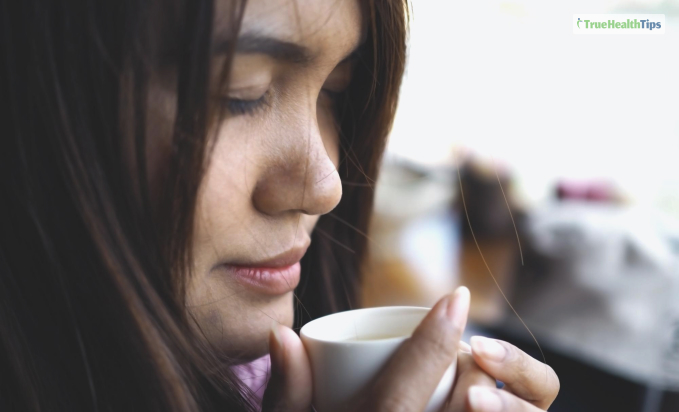
Why not go for natural, high-energy drinks to maintain concentration and focus? It can result in a more sustainable and composed lifestyle. Simple actions like regular physical exercise can help you have more energy and a high mental performance.
Likewise, this improves your cerebral function for cognition and mood control. Mindfulness practices such as meditation, which you can use to improve focus, can also help reduce anxiety. Those who love the taste of hot drinks can have tea without the stimulating effects of caffeine.
Especially if you want it as a comfort drink. For example, peppermint or ginger tea may be the best option.
Nutritional adjustments that include foods with high omega-3 fatty acids, antioxidants, and B vitamins will assist in nourishing the brain and energy. This way, individuals live a more tranquil life, albeit they can still enjoy the merits of clear-mindedness and alertness.
Tips about Caffeine: How to Change it to Something Else but Still have Enough Energy
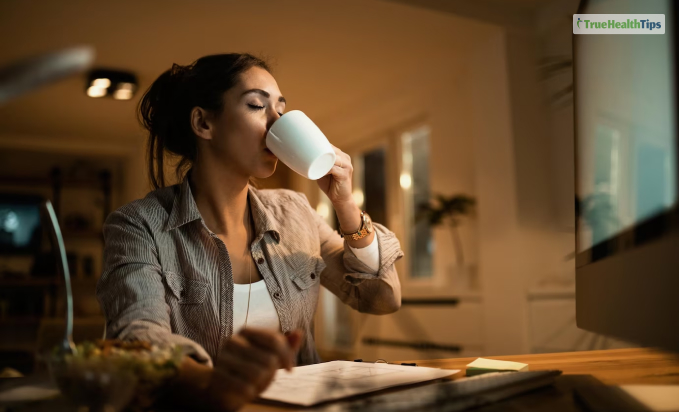
Now that you the answer to can caffeine cause anxiety, why not learn some of the alternatives!
Replacing coffee does not mean giving up your energy and focus. There are a lot of non-coffee alternatives that will refill energy without the possibility of anxiety problems. Below are a few suggestions:
Green Tea or Matcha
Both ingredients are good sources of theanine, a mild and natural stimulant, though they are not the richest sources of it. Theanine produces calmness and diminishes stress without causing drowsiness. Furthermore, the same teas rarely don’t have antioxidants and are also good for general health.
Yerba Mate
This South American drink is rich in stimulants resembling coffee but is generally less intense. It is a great source of antioxidants & nutrients and enhances energy & mental function.
Cacao
Cacao is a good magnesium source as this mineral is important in the body’s energy production. Besides it, it also contains traces of caffeine and theobromine, a cardiac stimulant. Begin the day with a cup of hot cacao, keeping you awake and alert.
Chicory Coffee
It has a coffee-like taste but is not caffeine-containing. Chicory root fiber consists of inulin, a prebiotic fiber that aids gut health.
Adaptogenic Herbs
Adaptogens are herbal substances that help the body cope with stress. These include ginseng, ashwagandha, and Rhodiola extracts that can be taken as herbal teas or supplements. They have been proven to increase energy levels and stress adaptation.
Chia Seeds
These are a good source of lasting energy because of their collagen, fats, and fiber. Blending them into smoothies or oats overnight can provide all-day-long energy.
To End the Caffeine Stimulating Discussion!
When trying to incorporate these changes into your diet, listen to your body and check how you feel about changes – this is important.
Don’t jump to any conclusion about can caffeine cause anxiety!
You are always encouraged to consult with a healthcare professional when you intend to make radical changes to your diet or lifestyle.
This demands balance, and it is possible to have energy that lasts and focus that isn’t dependent on caffeine.
The potency of the coffee brewing ritual resides precisely in the act of savoring every sip. The same applies here to the search for a balanced and relaxed energy. Through alternatives, and trial and error, and finally adoption of a healthier life can help you cut down on caffeine.
Read Also:

